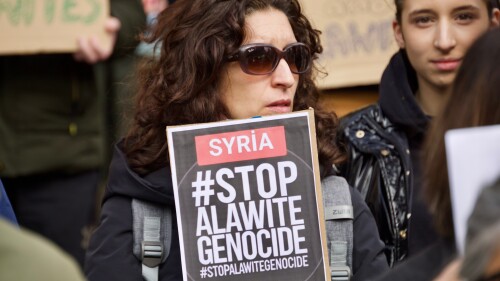
From left, Bahrain Foreign Minister Khalid bin Ahmed Al Khalifa, Israeli Prime Minister Benjamin Netanyahu, then-U.S. President Donald Trump, and United Arab Emirates Foreign Minister Abdullah bin Zayed al-Nahyan, at the Abraham Accords signing ceremony on the South Lawn of the White House, in Washington, D.C., September 15, 2020.
Shutterstock
When the Bahraini and Emirati foreign ministers stood proudly on either side of Prime Minister Benjamin Netanyahu and US President Donald Trump to sign the Abraham Accords four years ago, all four men — and their governments — imagined an era of steadily expanding ties between Israel and the Arab world.
“We’re here this afternoon to change the course of history,” Trump beamed from a balcony overlooking the South Lawn. “After decades of division and conflict, we mark the dawn of a new Middle East.”
Netanyahu said the new peace momentum could end the Arab-Israeli conflict “once and for all.”
When the Bahraini and Emirati foreign ministers stood proudly on either side of Prime Minister Benjamin Netanyahu and US President Donald Trump to sign the Abraham Accords four years ago, all four men — and their governments — imagined an era of steadily expanding ties between Israel and the Arab world.
“For too long, the Middle East has been set back by conflict and mistrust, causing untold destruction” and thwarting hopes of the region’s “youngest and brightest,” lamented Bahrain’s Foreign Minister Abdullatif al-Zayani. “Now I am convinced we can change that.”
Read the full article at the Times of Israel.







